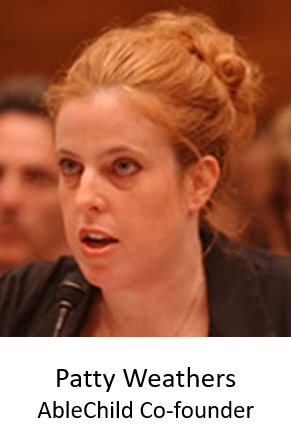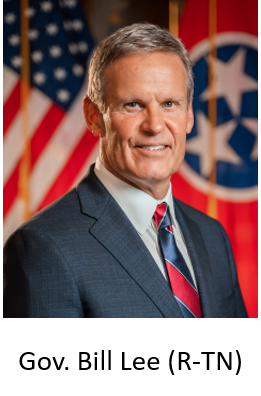Forced Mental Health Checks for Schoolchildren a Growing Threat
Thanks in part to entrenched social and emotional learning standards in public education, mental health interventions for schoolchildren are nothing new, but the threat of government-mandated mental health checks is even more ominous.
Education Reporter and others have for years documented the intrusion of school-district administrators and counselors into the psyches of America’s public-school students, whether or not the children needed their help or parents wanted it. (See the May 2024, August 2023, and September 2023 issues.) It is unclear whether parents are properly informed of these interventions or even notified that they are taking place.
According to an article by AbleChild, a national parents’ rights group incorporated in New York in 2003 as “Parents for Label and Drug Free Education,” there is “no mandate in 49 states (with New Jersey the lone exception and Illinois soon to follow) — yet nearly one-third of U.S. schools force mental health checks on kids.” While schools have long dabbled in the mental health arena, the trend is to “mandate” this type of screening and manipulation, with the end result often the prescription of powerful psychotropic drugs.
AbleChild was founded by two moms with firsthand experience on how mental health diagnoses and the prescription drug therapy that inevitably follows can be harmful to children. Co-founder Sheila Matthews’ biography describes how her son “was labeled as having behavioral issues at school and she was pressured to consider psychiatric medication for him.” This personal experience prompted her commitment to protect children and empower parents facing similar situations.
Matthews and co-founder, Patty Weathers, whose son was victimized by a series of powerful drugs which she was pressured by mental health professionals to give him, vowed to do what they could to “protect children from psychiatric labels and drugs” when they started their 501c3 organization. The website states that the group “is dedicated to protecting full informed consent and the right [of parents] to refuse psychiatric services” for their children.
RAND study results
The AbleChild article describes a RAND study published by the JAMA Network on July 18. The study captured the responses of 1,019 school principals on the topic of required student mental health screenings.
 RAND’s results show that “30.5 percent” of the principals who replied said their districts mandate the screening of students “for mental health problems.” Just over 79 percent reported that their schools “typically notify the student’s parents” if the student is determined to be suffering from anxiety or depression. Just over 72 percent of districts offer “in-person,” i.e., in-school treatment, and 53 percent refer students to “community mental health professionals.”
RAND’s results show that “30.5 percent” of the principals who replied said their districts mandate the screening of students “for mental health problems.” Just over 79 percent reported that their schools “typically notify the student’s parents” if the student is determined to be suffering from anxiety or depression. Just over 72 percent of districts offer “in-person,” i.e., in-school treatment, and 53 percent refer students to “community mental health professionals.”
All this begs the questions, are parents notified before the fact that their children are being subjected to mandatory mental health screenings? Are they given an opportunity to opt their children out? What types of questions are children asked during these screenings, and how are their responses evaluated?
AbleChild charges that the “behavioral health industry is doing everything it can to insert itself into your child’s life” and that “mental health experts make no bones about it,” admitting that they believe “schools are the natural place to do it.”
This notion should come as no surprise to many parents and observers who have witnessed the placement of school-based health clinics in public schools over the past several decades. Phyllis Schlafly warned about this development as long ago as June 1997, and Education Reporter has documented the evolution of these clinics over the years, most recently in the articles cited above.
Over time, in-school clinics usurped the traditional “school nurse’s” offices, and were installed under the guise of serving low-income students and others perceived to be at risk for lack of health care. But the overarching reason was to provide “sexual health services,” i.e., birth control and abortion referrals away from the watchful eyes of parents and without their knowledge or consent. More recently, the clinics also offer support for kids who decide they are the opposite gender, i.e. “born in the wrong body.”
Proliferation of mental health screenings
As it now stands, New Jersey is the only state that requires public schools to provide annual depression screenings for all students in grades 7-12. But on July 31, Illinois Governor J.B. Pritzker signed a bill into law that will force public schoolchildren in grades 3-12 to undergo annual mental health screenings starting in the 2027-28 school year. Many more states are reportedly also considering mandatory mental health screenings for kids “but have yet to pass the required legislation.”
 Illinois parents are pushing back on the new law, with some parents calling it “disastrous.” Illinois State Rep. Adam Niemerg (R-102) told Fox News that SB 1560 is “a very dangerous piece of legislation that removes parental rights.” Fox quoted author and Manhattan Institute Fellow, Abigail Shrier, as writing on X: “"I want to be on-the-record and crystal clear. This is a disastrous policy that will do vastly more harm than good.... Watch as tens of thousands of Illinois kids get shoved into the mental health funnel and convinced they are sick, many or most of which will be false positives.”
Illinois parents are pushing back on the new law, with some parents calling it “disastrous.” Illinois State Rep. Adam Niemerg (R-102) told Fox News that SB 1560 is “a very dangerous piece of legislation that removes parental rights.” Fox quoted author and Manhattan Institute Fellow, Abigail Shrier, as writing on X: “"I want to be on-the-record and crystal clear. This is a disastrous policy that will do vastly more harm than good.... Watch as tens of thousands of Illinois kids get shoved into the mental health funnel and convinced they are sick, many or most of which will be false positives.”
AbleChild poses the logical question that, if only one state currently mandates mental health screenings for students, where do the other 49 get the authority to do so? Funded by grants through the state’s Mental Health Screening in Schools Grant Program, New Jersey requires screenings for grades 7-12, and Illinois will require them starting in grade 3 in 2027. But AbleChild points out that children as young as kindergarten are already being screened in many of the nation’s public schools.
Of the New Jersey law, Matthews told Education Reporter: “It’s a very weak and failed state that forces its children to be mentally screened with unscientific checklists to cater to the psychiatric behavioral health and pharmaceutical industries that profit from the drugging of American children.” She is referring to the methods New Jersey uses to conduct the screenings electronically — with tools “selected by the state’s commissioners of education and children and families.”
Matthews is also critical of New Jersey’s “opt out” policy. “Let me be very clear,” she said, “when there is an ‘opt out’ policy rather than an ‘opt in’ policy, the state is putting their vendors ahead of the liberty and freedom your children inherited from previous generations.” She added: “The behavioral health, psychiatry, and mental health industry, or whatever they call themselves today, are experts of nothing. Their experimental psychiatric drugging has utterly failed our children. Your family has every right to reject this conglomerate and your state’s relationship with it.”
But perhaps the burning question is how soon the remaining 48 states will put the force of state law behind the screenings that are already taking place in many school districts nationwide. As the AbleChild article points out, data show that “despite yearly increases in mental health services, no one appears to be getting better and, in fact, America’s children are in a mental health ‘crisis.’ Maybe it’s time to learn more about the validity of the mental health services that the behavioral health industry is offering and so badly wants to be incorporated into the nation’s schools.”
Positive law in Tennessee
On July 1st, Tennessee Governor Bill Lee signed SB 1146 into law, which requires the state’s medical examiners and/or “regional forensic centers” to obtain information on a decedent’s “psychotropic drug use,” if the decedent is suspected to have committed a mass shooting that resulted in the deaths of four or more individuals.”
The purpose of the law is to determine whether psychotropic drug use was involved in mass shootings by mandating toxicology testing. The law also mandates consultation with the decedent’s mental health providers, if any, and calls for the University of Tennessee Health Science Center (HSC) to conduct studies “on interactions between psychotropic drugs and other substances in perpetrators’ systems, and public disclosure of psychotropic drug use by shooters upon request, with personal identifiers redacted.”
 AbleChild writes that Tennessee’s landmark legislation “amends Tennessee codes to prioritize transparency over privacy in cases of mass violence, directly challenging pharmaceutical and behavioral health industries to confront potential links between their products and practices and public safety risks.”
AbleChild writes that Tennessee’s landmark legislation “amends Tennessee codes to prioritize transparency over privacy in cases of mass violence, directly challenging pharmaceutical and behavioral health industries to confront potential links between their products and practices and public safety risks.”
These risks have long been suspected, and Phyllis Schlafly sounded the alarm decades ago. One of her reports described an intrusive plan hatched during the George W. Bush Administration that included recommendations for “routine and comprehensive” testing and mental health screening of every child in America, including preschoolers.” Schlafly revealed that the plan proposed “‘linkage’ of these mental examinations with ‘state-of-the-art treatments’ using ‘specific medications for specific conditions,’” which she said meant “prescribing more expensive patented antidepressants and psychostimulant drugs such as Ritalin.”
Likely thanks to Phyllis Schlafly and others who sounded the alarm at the time, this plan was never implemented, but as demonstrated by research such as the RAND study, most American children today are given mental health screenings anyway.
Parents and concerned citizens should find out if their state is considering legislation to force public schools to probe students’ mental health, and petition their state legislators to oppose these measures. As AbleChild’s article notes, “school mental health professionals do not provide parents with informational pamphlets that explain that neither the Food and Drug Administration (FDA) nor the pharmaceutical companies have any idea how psychiatric drugs ‘work’ as ‘treatment’ for any alleged mental disorder diagnosis.
“Considering that the number of children being diagnosed with a mental disorder and drugged as a form of ‘treatment’ continues to increase every year, perhaps parents may want to opt their children out of the mental health screening....”
Currently, that’s an option almost everywhere if parents are notified of the screenings ahead of time. However, if these screenings become widely mandated by state and/or federal law, the battle for disclosure and opt-out opportunities could become extremely difficult to win.
Want to be notified of new
Education Reporter content?
Your information will NOT be sold or shared and will ONLY be used to notify you of new content.
Click Here
Return to Home Page
